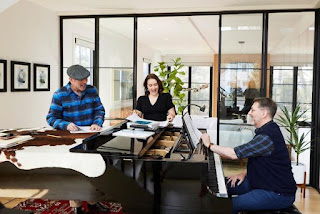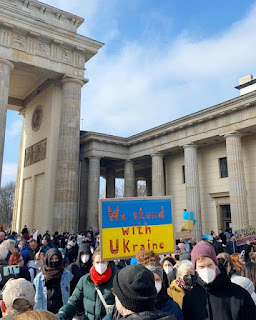INTERVIEW: Erin Morley
Teatro alla Scala
ERICA MINER
Her last-minute debut in 2013 as Sophie in the Met’s Der Rosenkavalier defined her as a performer to watch. Now, on April 15, Morley will make her much-anticipated La Scala debut singing the high-status role of Zerbinetta in Richard Strauss’s Ariadne auf Naxos. She recently added to her considerable symphonic experience with Mahler’s Symphony #2, also at La Scala. Here, communicating from Milan, the soprano shares her infectious ebullience as she holds forth on multiple aspects of her career.
ERICA MINER: Erin, I am so delighted with your success. If anyone deserves it, you do! Such amazing talent coupled with an appreciation of how hard you have worked to achieve so much.
ERIN MORLEY: How sweet! Thank you so much!
E Miner: Let’s begin at the beginning. Where did you grow up? How did you find your way to the opera world?
E Morley: I grew up mostly in Pennsylvania and Utah, and my family is all very musical. My dad always sang songs with me and my siblings at the piano, my mom taught me violin and piano and eventually became a recital partner. As kids, my siblings and I were always involved in theatre, dance, choirs, orchestras, you name it! We learned to appreciate all styles of music. Both of my parents are very active in the music scene in Salt Lake City today.
E Miner: Who were your greatest influences?
E Morley: Certainly my parents, especially my violinist mother…and my early teachers. Voice teacher Betty Jeanne Chipman and piano teacher Solveig Lunde Madsen. These women were huge in shaping my choices after high school. Solveig had studied piano with Olga Samaroff Stokowski at Juilliard and then concertized all over the world. She was an exceptional pedagogue, and her stories were like food for my hungry young musician’s soul. Juilliard became my dream and I’m very glad to say I made it there (but as a singer!) As I started to become interested in opera as a teenager, I discovered Renée Fleming, Cecilia Bartoli, Ruth Ann Swenson, June Anderson, Beverly Sills, and then Edita Gruberova, Natalie Dessay, Joan Sutherland, Maria Callas, Renata Scotto . . . Legends. I will be forever learning from their work.
E Miner: And what great choices for inspiration! You have received one of opera’s most esteemed honors, the Beverly Sills Award, and are a graduate of the Met’s prestigious Lindemann Young Artists Development Program. How did that feel, and what was the experience like for you?
E Morley: It’s an enormous honor. The Beverly Sills Award came to me during the pandemic, and it was a sort of light in the darkness for me. I got the news when I was in Vienna, the city was still largely locked down, I was singing “Der Rosenkavalier” at the Wiener Staatsoper to an empty house—my only performance in an entire year. I think so many artists questioned their worth during the worst of the pandemic—this award gave me such a surge of energy and hope. Of course I was elated!! And I adore Beverly, so to have the Met’s award in her name is extremely special.
 |
| Michael Poehn |
E Miner: Your Twitter videos accompanying yourself at the piano with your golden voice helped me and countless others get through the worst days of the pandemic. Did you feel strongly about doing those?
E Morley: Thank you so much for saying that! It was something I felt very strongly about sharing—and honestly helped me through the pandemic too. It was my reality during most of the pandemic, alone with my piano, trying to reach people somehow. I felt I had to spread the message that music was still alive and could still move us and heal us. I’m so glad people connected with it, and that connection certainly fed my soul.
E Miner: One word: Eurydice. Does it get any better?
 |
| Marty Sohl |
E Morley: Everything about that project felt so “once in a lifetime”! I never imagined I’d be singing a title role at the Met, I never imagined my face would be all over Lincoln Center, I never imagined I’d be premiering a new work of such importance. And the collaboration with Sarah Ruhl and Matt Aucoin was thrilling. They were both so generous to me. The cast was remarkable. The HD Broadcast was so special…Definitely one of my life’s defining moments!
I’m also completely thrilled to be returning to the Met at the end of May as Gilda. Rigoletto is such an iconic work and the performance history at the Met is overwhelming. Happy soprano right here! Two huge roles in one Met season. I’m gobsmacked, really.
 |
| Michael Poehn |
E Miner: Perhaps it does get better: your La Scala debut on April 15! Tell us everything.
E Morley: Oh my goodness, where to begin!? I’m making my La Scala debut!!! This is huge for me emotionally, to even walk inside the door on the first day was overwhelming. I came to Milan 16 years ago with my husband John for a few days, and we saw Ariadne auf Naxos. Can you believe?! We had partial view seats and I couldn’t see very well. This nice man in the front of the box gave me his seat. (What an act of kindness, and he probably had no idea how meaningful it was to me.)
I was, quite simply, changed by the experience of seeing that performance. Now I am here, singing the same opera, for my La Scala debut. This is the stuff dreams are made of. I can’t believe how my career is playing out. So grateful for all the opportunities I’ve been given. Very grateful to general manager Dominique Meyer for bringing me here.
I have felt connected to the music of Richard Strauss and especially the role of Zerbinetta throughout my career. It’s a huge pleasure to debut at La Scala with something so familiar to me and with such a fantastic cast. Krassimira Stoyanova as Ariadne, ahhhhhh that voice is insanely gorgeous. My family is coming for opening night, my friends…It’s just a really really big moment.
 |
| Dan Norman |
AND I am also making my concert debut in Mahler's 2nd Symphony – TOMORROW (Mar. 30)! This was a last-minute addition to my schedule, and the first time I will have ever sung the Mahler 2. I have spent the last few days learning the part with Maestro Riccardo Chailly and I feel absolutely transported by this music.
E Miner: Yes! That piece is the pinnacle. I’m dying to hear about the album you are making of Ricky Ian Gordon’s Huit Chansons de Fleurs, accompanied by Gerald Martin Moore, with flutist Ransom Wilson.
 |
| Andrea Carson |
E Morley: I’m SO excited about this album! We just finished recording last week. Yes, we have Ricky’s new song cycle, which is 8 songs about flowers, really about savoring life and confronting its impermanence. Beautiful poems and music. And then we have several songs in a variety of languages about birds - Ransom Wilson joins us for Michael Head’s “Bird Song” which isn’t heard very often but is a total gem. There are a lot of surprises on the disc, including “La Libellule” (the dragonfly) by Saint-Saëns which is rarely heard and was written for (about??) the famous singer Sibyl Sanderson, and a fantastically difficult aria from Arthur Sullivan’s The Rose of Persia called “Neath My Lattice” (with several high F#s - whew!...) The whole program is a sort of garden collection of our favorite things. I can’t wait to share it with the world!
E Miner: And we can’t wait to hear it! While in Berlin last February, you participated in a demonstration against the Ukraine war. Do you feel it’s especially important for artists to express their outrage over this situation?
E Morley: As a world citizen, yes, I feel the need to express outrage over this. I am horrified by the war in Ukraine. The consequences have already been world-altering. I did attend that massive protest in Berlin on February 27, and it will forever remain one of the most deeply moving experiences of my life. To see throngs of people coming together, speaking out against the evils of this war, and at the Brandenburg Gate…I walked alongside Ukrainians, Georgians, Germans, and Russians, among others, all united in purpose. It was awful to think of what brought us there, but absolutely inspiring to feel the power of the people’s voice.
 |
| Courtesy of the Artist |
Of course many terrible things have happened since that day. I think our best course of action as artists is to donate to humanitarian aid, through concert benefits or otherwise, and to promote peace and unity within our concert halls. I certainly feel a renewed appreciation for freedom and privilege in a way that I didn’t a couple of months ago, and I think we have a responsibility to use that freedom and privilege to sustain those who are suffering.
E Miner: Which roles are on your future wish list? What exciting projects are in your immediate plans?
E Morley: Well I’m happy to say that two very exciting roles are coming up rather soon. Lakmé will be in May with Washington Concert Opera in DC, (Gilda at the Met following shortly thereafter), and Norina (Don Pasquale) will be this summer at Glyndebourne. Looking ahead, I have a couple of new roles coming up for next season, which will be announced soon, and I have the exciting new Simon McBurney production of Magic Flute coming up at the Met. Happy to say Gilda is still a big part of my future plans. And I have some recordings coming out soon, including Meyerbeer’s Robert le Diable, recorded with Marc Minkowski and Opéra National de Bordeaux this past September.
E Miner: These all sound amazing. Thank you so much, Erin, for spending this time with me. Toi, toi for La Scala! I look forward to following your continuing meteoric rise!
E Morley: That means so much to me, Erica. Thank you for your support!!!
 |
| Michael Poehn |
---ooo---
Photo credits: Monarca Studios, Michael Poehn, Marty Sohl, Dan Norman, Andrea Carson
Erica can be reached at: [email protected]














No comments:
Post a Comment